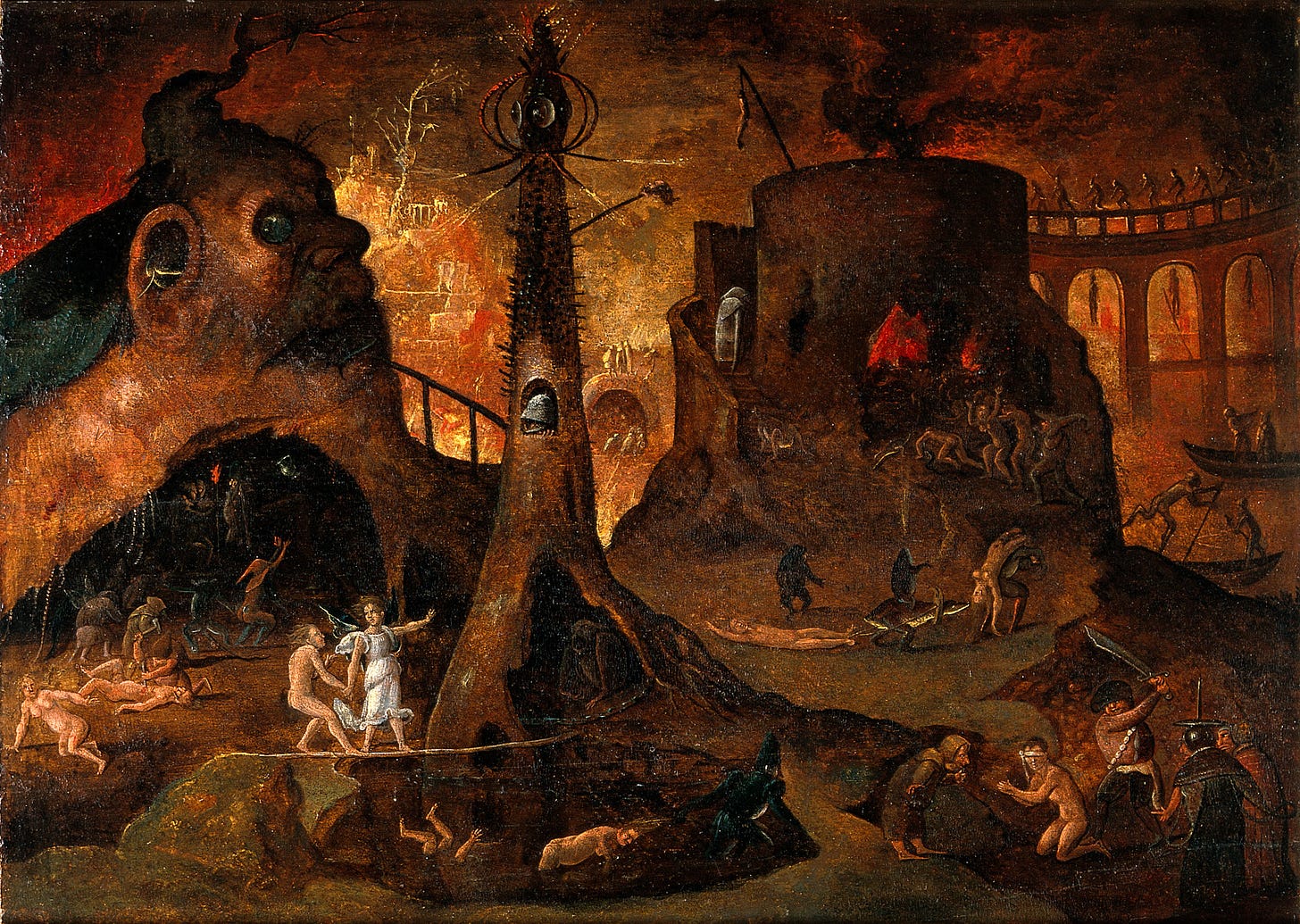Evil and Foreign Policy
Aporias, Aphasia and Reality
Hieronymus Bosch (circa 1450-1516), An Angel Leading a Soul into Hell; Source: wellcomeimages.org
Evil is certainly the primary philosophical question. It haunts every person who is supposed to think. No thinking can eliminate the question of evil, let alone fail to distinguish between evil and good—and, as Hannah Arendt has often written, he who does no…


